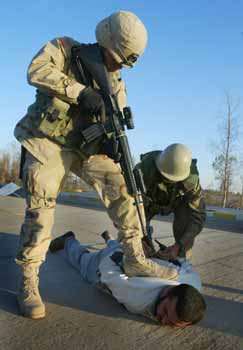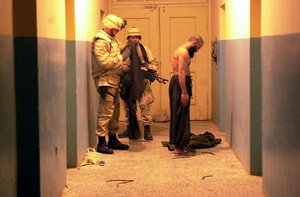Making It Real Compared to What
Making It Real Compared to What
 The politics of the day. The music of the day.
The politics of the day. The music of the day.They seem to go hand in hand.
How do they get combined? What is the listener hoping to hear on a community radio station? If the personal is political isn't the musical also personal and therefore political?
The answers are obvious on one level. We feel both politics and music in our souls and in our bones. They are both very real.
But real compared to what?
The KYRS Collective has met six times to date. The discussion and tenor initially tended heavily towards the purely political but has now moved to deal with the purely musical and on to the place where politics and music merge. With issues in the air like what music gets played when and how often and who decides and who loads automation and other important matters, it seems appropriate that deference be given to those requesting that the KYRS Collective conscientiously and collectively address these questions and others as they surface.
NEXT KYRS COLLECTIVE MEETING:
Wednesday, May 30, 2007 @ 6 PM Community Building, 35 W. Main Street, Spokane
http://www.popmatters.com/features/030328-iraq-neal.shtml
(excerpt)
Most classic soul listeners are very familiar with Edwin Starr's chart-topping song "War," which always gets referenced in potted histories of the Anti-Vietnam War movement. Marvin Gaye's "What's Going On," with its passionate, layered, and sophisticated pleas for peace, environmental justice and spiritually is generally regarded as one the most important protest recordings ever released. But very few of the folks who currently have Gaye, Starr, and a host of others on the nostalgia mix-tape, have even a fleeting clue of who Eugene McDaniels is.
And so: Eugene McDaniels had a solid, if not spectacular, recording career in the 1960s, singing pop ditties for the Liberty label. Disenchanted by the state of race relations in the late 1960s, most notably the assassination of Martin Luther King, Jr., McDaniels took a brief sojourn from the States. During this period, he wrote "Compared to What." The song was initially recorded and released by a young soul vocalist by the name of Roberta Flack: her version appeared as the opening track
on her debut recording, First Take (1969).
A second version of the song was recorded later that year by pianist Les McCann and saxophonist Eddie Harris for their album, Swiss Movement, recorded live at the Montreux Jazz Festival. The McCann and Harris version became an international hit, selling over a million copies.
Les McCann and saxophonist Eddie Harris for 1969 album,
Swiss Movement, recorded live at the Montreux Jazz Festival.
Part 2
At a time when black folks, American youth, and anti-war protesters were literally taking it to the streets, "Compared to What" was a scathing critique of social realities in the United States, taking aim at the clergy, "poor dumb rednecks," "tired old ladies," and the Vietnam War. McDaniels' lyrics were clear: even to raise questions about the war in Vietnam was considered an act of treason. McDaniels' observation, of course, resonates powerfully in the post-9/11 world, where folks like Congresswoman Barbara Lee and Noam Chomsky have openly questioned the legitimacy of U.S. military action in Afghanistan and Iraq.
The success of the McCann and Harris recording of "Compared to What" began a new chapter in McDaniels' career, as he was signed to the Atlantic Recording label. But this "second" stage was short-lived. McDaniels recorded two discs for the label, the second of which, Headless Heroes of the Apocalypse (1971), goes down in pop lore as one of the most blatantly political musical tomes ever recorded and released commercially by a major label. Headless Heroes contains critiques of blue-eyed soul ("Jagger the Dagger"); examines the phenomenon of "shopping while black" ("Supermarket Blues") years before "racial profiling" entered into the national lexicon; and checks the futility of race hatred ("Headless Heroes").
"The Parasite," on the same album, is McDaniels' most stinging critique, of the root of American Imperialism and its relationship to the genocide of America's native populations. On the track, McDaniels describes some of the early settlers as "ex-hoodlums" and "jailbirds" who used "forked tongues" in their drive to pollute the water and defile the air. Referencing the U.S. ideology of "Manifest Destiny," McDaniels sang that as "agents of God, they did damned well what they pleased."
Shortly after the release of Headless Heroes, the label "dropped" McDaniels. Apparently, he tweaked some folks at the White House with a not so thinly veiled shot at the Nixon administration ("Rewriting the standards of what's good and fair / Promote law and order / Let justice go to hell"). As myth has it, then Vice President Spiro Agnew gave a quick holla to Armet and Neshui Ertegun, the founders of Atlantic. In a recent article in the Kansas City Star, McDaniels reflects that the duo "fired me on the spot and killed the record." McDaniels disappeared as a recording artist, though he continued to write songs..... (end excerpt)











